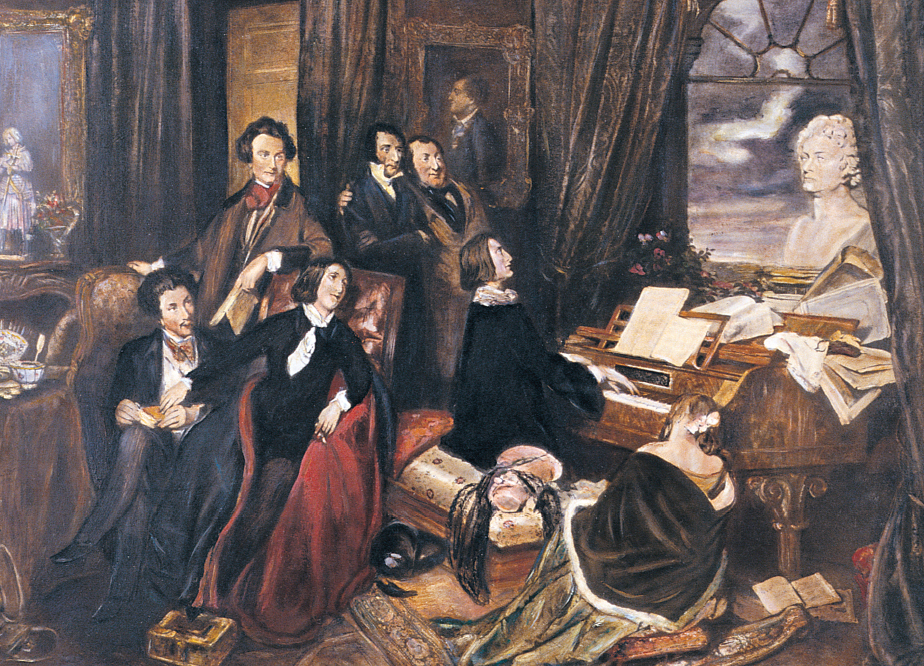1 | Romanticism
Romantic literature and literary theory flourished particularly in and around the first two decades of the nineteenth century. In England, this was a great age of poetry: Wordsworth, Coleridge, Shelley, Keats, and Byron. There was also a brilliant outpouring of German Romantic literature during the same period, though the names of its writers are less familiar in the English-
For us, the word romantic refers to love; this usage dates from the nineteenth century and derives from the literary movement. But the glorification of love was only one of the many themes of Romantic literature, themes that were also central to the music of the nineteenth century.

The power of Romantic music: Liszt as the inspiration for novelists Alexandre Dumas, Victor Hugo, George Sand, and Daniel Stern (on the floor). Daniel Stern was the pseudonym of the Countess d’Agoult (see page 247). In the back, opera composer Gioacchino Rossini embraces violin virtuoso Niccolò Paganini. Bettmann/CORBIS.